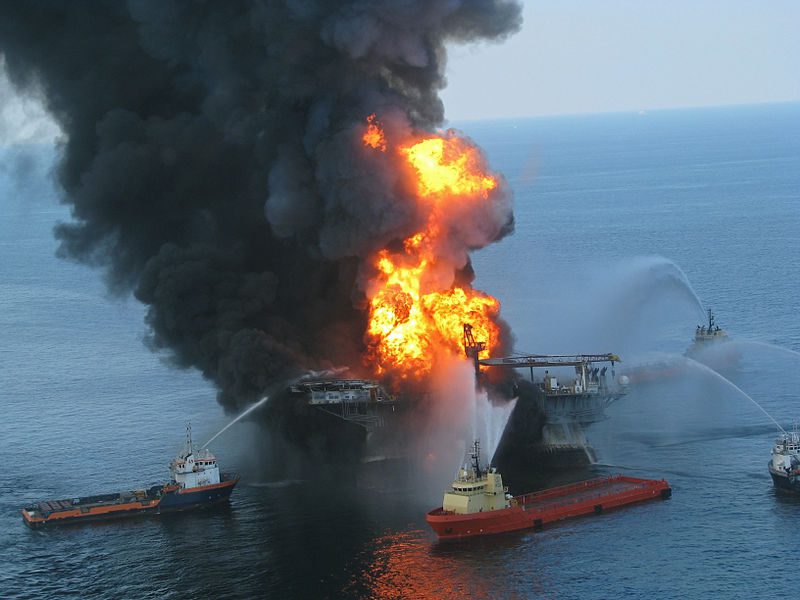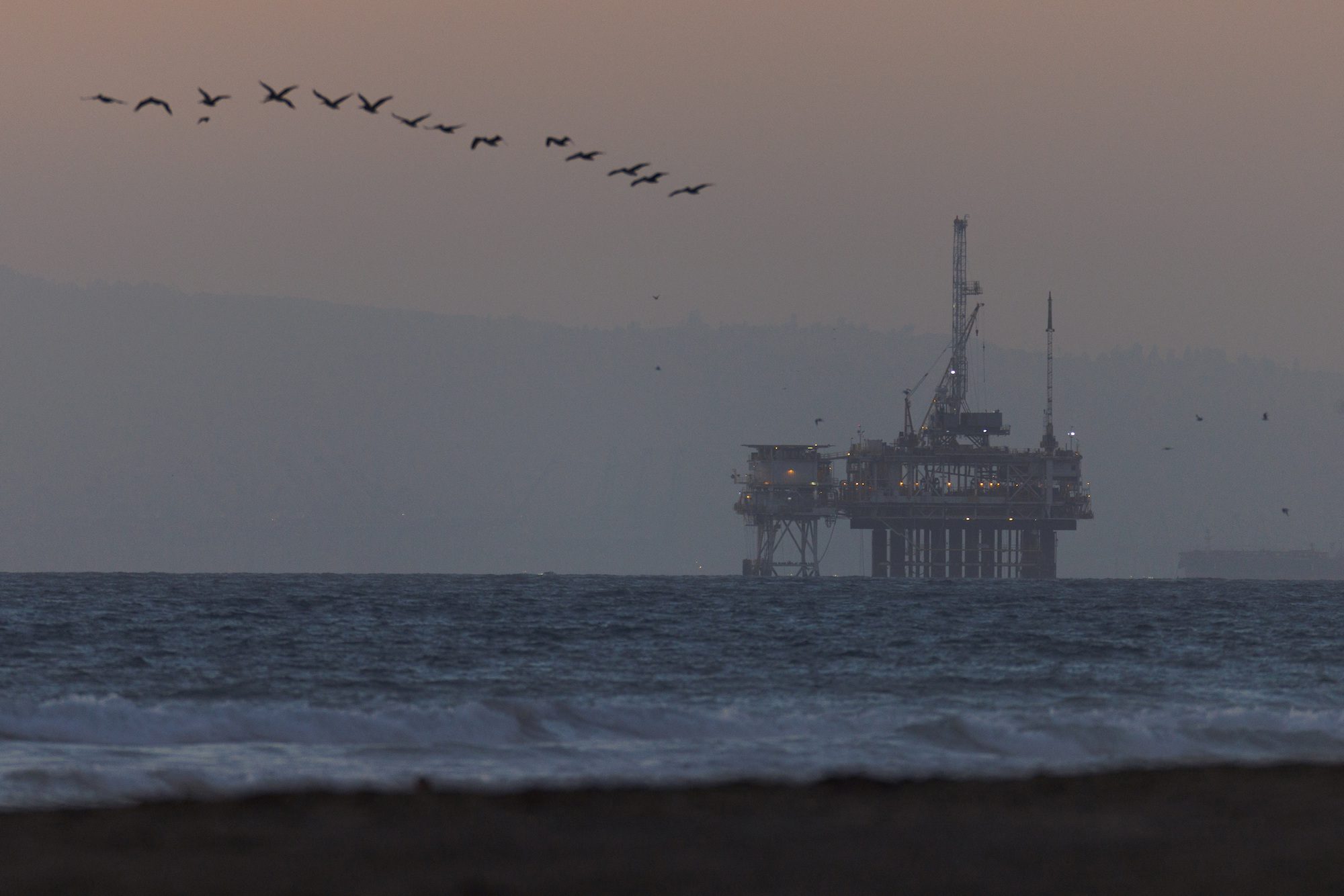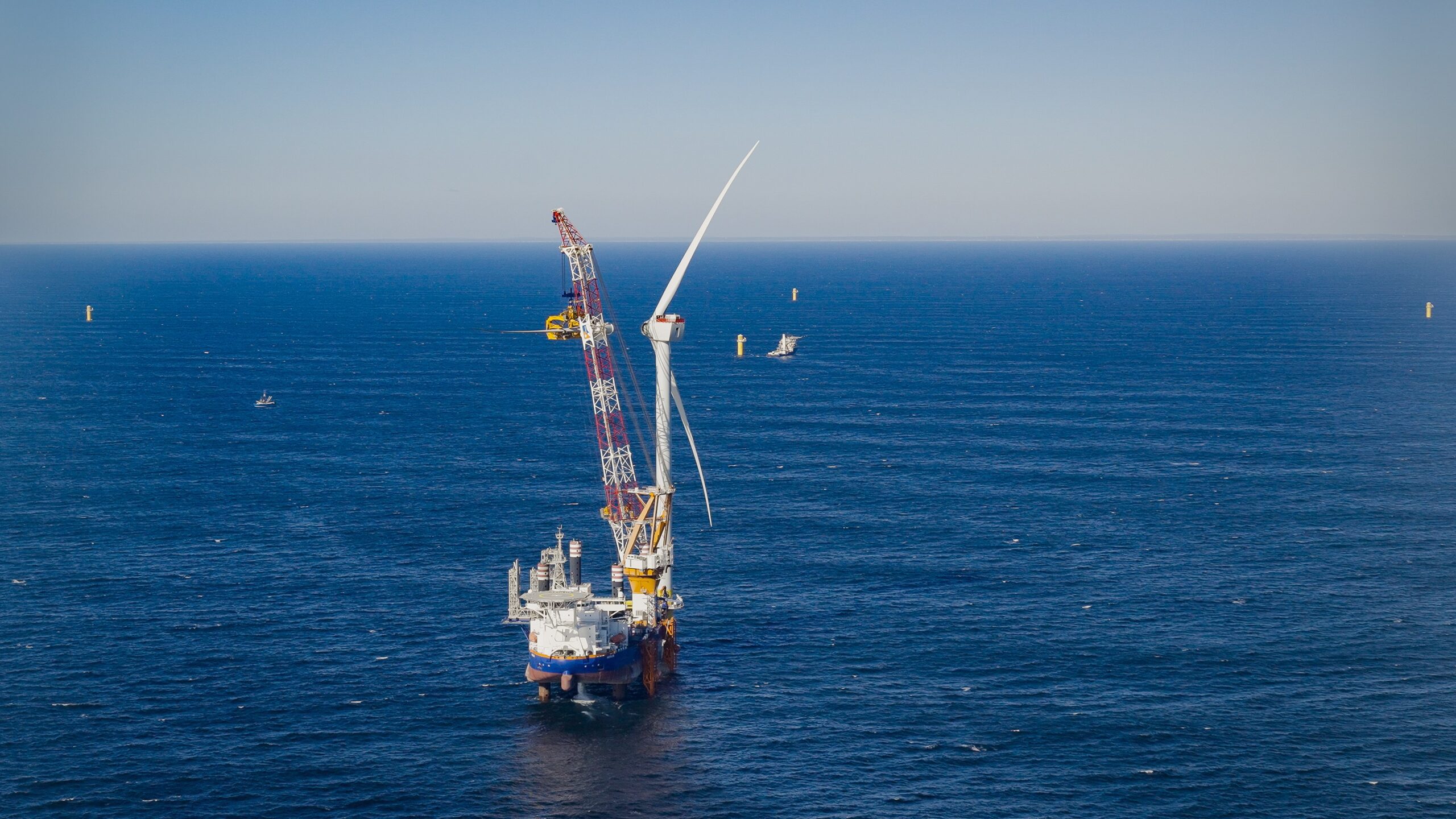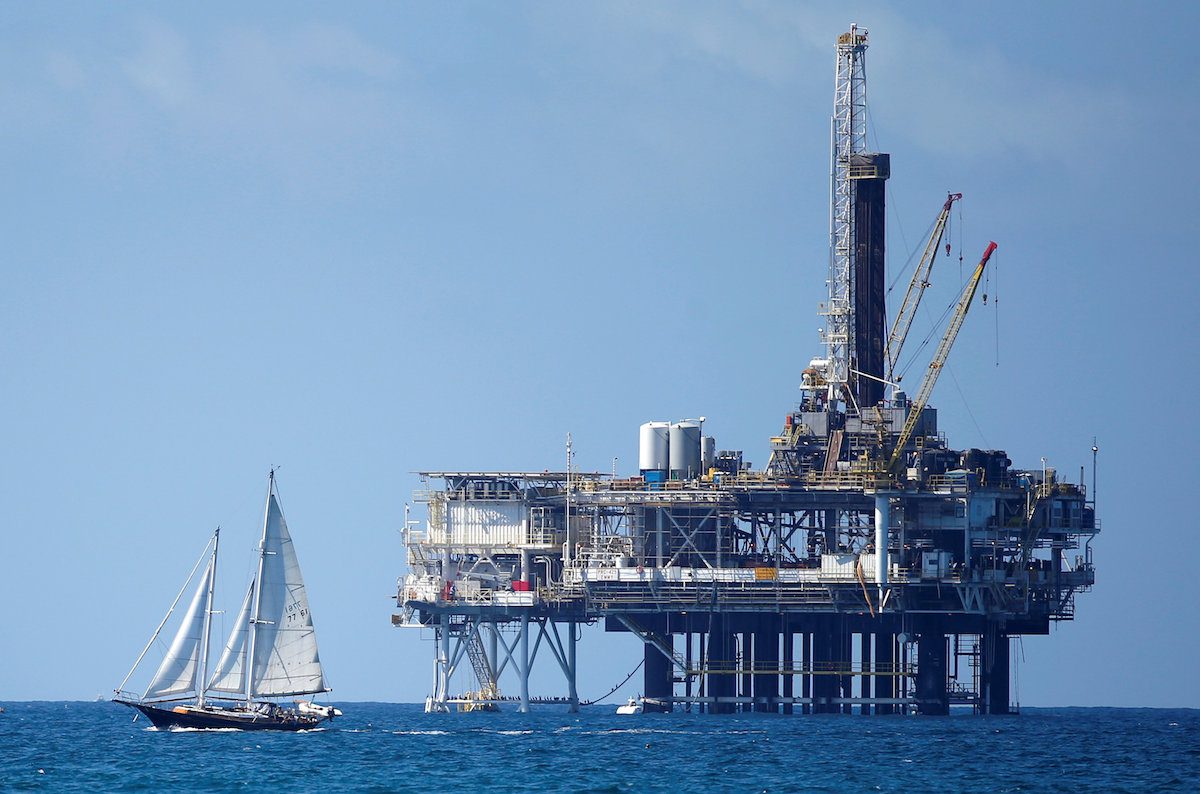US Coast Guard image
By Margaret Cronin Fisk
(Bloomberg) — BP Plc heads into a sprawling trial Monday over who is liable for the biggest offshore oil spill in U.S. history with an early victory, after a judge ruled some documents related to its criminal conviction can’t be used.
In November, BP reached a deal with the U.S. Justice Department, agreeing to pay $4 billion to resolve the criminal case stemming from the spill. Prosecutors also indicted three BP workers. U.K.-based BP, owner of the Macondo well that blew up in the Gulf of Mexico in 2010, claimed criminal allegations against the company, as well as the indictments, were “hearsay” and couldn’t be used in next week’s civil trial.
U.S. District Judge Carl Barbier in New Orleans, while agreeing with the company, declined to rule on whether BP’s guilty plea would be barred as well. BP, which settled many spill claims last March in an $8.5 billion civil pact, said it will fight those that remain “vigorously,” including making the argument that some business profit and tax revenue losses were made up for by the economic boon of an influx of cleanup workers.
The blowout and explosion aboard the Deepwater Horizon rig killed 11 workers and spilled more than 4 million barrels of oil. The disaster sparked hundreds of lawsuits against BP, Vernier, Switzerland-based Transocean, which owned the rig, and Houston- based Halliburton Co., which provided cementing services.
Barbier will conduct a nonjury trial beginning Feb. 25 to determine liability for the incident and whether any of the defendants acted with gross negligence. In a separate ruling this week, he said Halliburton and the plaintiffs can show some evidence of Transocean’s “prior alleged improper conduct.”
$17.6 Billion
BP faces $17.6 billion in potential penalties for environmental violations. It also faces potential fines by affected states, and billions of dollars in additional damages by plaintiffs who weren’t offered settlements by the company.
The U.S. and gulf coast states are considering a $16 billion settlement offer to BP, the Wall Street Journal said yesterday, citing unidentified “people familiar with the discussions.” Scott Dean, a spokesman for BP, and Wyn Hornbuckle of the Justice Department, declined to comment.
For Monday’s trial, Transocean had urged Barbier to bar evidence that isn’t directly related to its conduct on the well. Opponents will be able to introduce a series of Transocean e- mails and letters concerning prior well-control incidents on other company rigs, including one that occurred within months of the Macondo blowout, Barbier said.
Gross Negligence
Steve Herman, a lead attorney for the plaintiffs, which include businesses, municipalities and individuals, said, “There is overwhelming evidence that BP, Transocean and Halliburton were all grossly negligent, and we look forward to introducing that evidence at trial.”
A finding of gross negligence, as opposed to simple negligence, will increase the potential fines against the company under criminal law by billions of dollars, reaching as high as $17.6 billion.
Dean, of BP, declined to comment on Barbier’s ruling on the use of criminal evidence. Transocean’s spokesman Lou Colasuonno didn’t return calls and e-mails seeking comment.
All victims whose claims were excluded from the settlement must prove the spill directly caused their physical or economic injury, as required under the Oil Pollution Act, which governs spill-damage compensation, legal experts said.
“Causation is the main hurdle, because the bulk of claims for economic loss are by people without physical damage,” said David Robertson, a University of Texas law professor who has advised lawyers leading the spill suits. “There’s a whole huge block of the economy that was heavily affected by the spill, and some of these are very large claims.”
Fault Findings
Barbier’s findings of fault will be applied to subsequent trials where specific dollar-amounts for spill damages will be determined, including those on claims excluded from the initial settlement. Plaintiffs’ lawyers said those damages trials, unlike the phase beginning next week, will be heard by juries.
Following next week’s trial, claimants may pursue their claims individually, with the court’s determination of fault in hand. However, they will have to then prove they were injured, and that it was caused by the spill defendants.
The company said in court papers that it may try to prove that tax-revenue losses by some governmental entities and revenue-loss claims by some tourism businesses, such as casinos, were offset by increases in economic activity generated by BP’s cleanup crews.
Thousands of BP workers swarmed the coastline in 2010 and 2011 to clean up the spill, and BP said in court filings that spending by these workers largely replaced lost tourist dollars.
The case is In re Oil Spill by the Oil Rig Deepwater Horizon in the Gulf of Mexico on April 20, 2010, MDL-2179, U.S. District Court, Eastern District of Louisiana (New Orleans).
Copyright 2013 Bloomberg.

 Join The Club
Join The Club











